These are the rating for Central Bankers fromthe Asia-Pacific region in 2017.
For 23 years, Global Finance has been grading central bankers on how well they do their jobs. Our ratings are largely based on inflation control, economic growth, currency stability and interest-rate management. Other factors taken into account are central bankers’ skills in supervising financial institutions and their determination to protect their independence in the face of political pressure. For more on individual central bank governors, scroll below. For more details on individual central bank governors, scroll below.
|
ASIA-PACIFIC | |||
|---|---|---|---|
| Country | Central Bank Governor | 2017 | 2016 |
|
Australia |
Philip Lowe |
A |
Too early to say |
|
Azerbaijan |
Elman Rustamov |
C |
D |
|
Bangladesh |
Fazle Kabir |
B |
Too early to say |
|
China |
Zhou Xiaochuan |
C+ |
C |
|
Hong Kong |
Norman Chan |
B- |
B |
|
India |
Urjit Patel |
B+ |
Too early to say |
|
Indonesia |
Agus Martowardojo |
B |
B |
|
Japan |
Haruhiko Kuroda |
B+ |
B |
|
Kazakhstan |
Daniyar Akishev |
B |
C |
|
Malaysia |
Muhammad Ibrahim |
B+ |
Too early to say |
|
Myanmar |
Kyaw Kyaw Maung |
C+ |
N/A* |
|
Nepal |
Chiranjivi Nepal |
C+ |
N/A* |
|
New Zealand |
Grant Spencer (Acting) |
Too early to say |
B** |
|
Pakistan |
Tariq Bajwa |
Too early to say |
B** |
|
Philippines |
Nestor Espenilla Jr |
Too early to say |
A** |
|
Singapore |
Ravi Menon |
B- |
B- |
|
South Korea |
Lee Ju-yeol |
B |
B+ |
|
Sri Lanka |
Indrajit Coomaraswamy |
B+ |
Too early to say |
|
Taiwan |
Fai-Nan Perng |
A |
A |
|
Thailand |
Veerathai Santiprabhob |
C+ |
B- |
|
Uzbekistan |
Mamarizo Nurmuratov |
Too early to say |
C** |
|
Vietnam |
Lê Minh Hung |
B- |
Too early to say |
| CENTRAL BANK GOVERNORS | ASIA-PACIFIC |
|---|
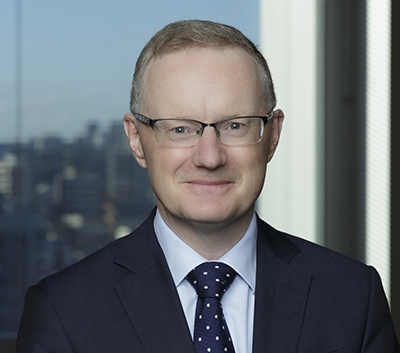
AUSTRALIA
Philip Lowe
GRADE: A
The Reserve Bank of Australia held its cash rate unchanged at a record low 1.5% at its August policy meeting. Lowe, who became governor in September 2016, says rates won’t always be this low. The mining decline is ending, and the Australian economy is strengthening. Lowe, who completed a doctorate at MIT in 1991 and was advised by Nobel Prize–winning economist Paul Krugman, says higher rates risk stoking indebtedness. Low wage growth is leading to weaker-than-expected inflation and lower household consumption, Lowe says. The RBA is prepared to be patient before raising rates. A rising Australian dollar could dampen inflation and economic growth.
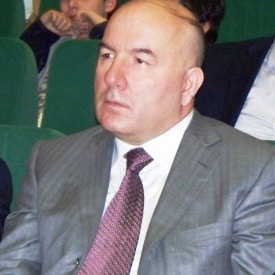
AZERBAIJAN
Elman Rustamov
GRADE: C
The Central Bank of Azerbaijan hiked its key interest rate from 9.5% to a record 15% in September 2016 to prop up the manat, which tumbled along with oil prices and had lost half its value in 2015. Bolstering the currency remains the primary goal of the central bank, which has maintained rates at a record high this year. Meanwhile, the economy contracted in 2016 and continued to weaken in 2017. Rustamov, the bank’s long-time chairman, expects the country’s 13.5% inflation rate to cool to single digits by the end of this year.
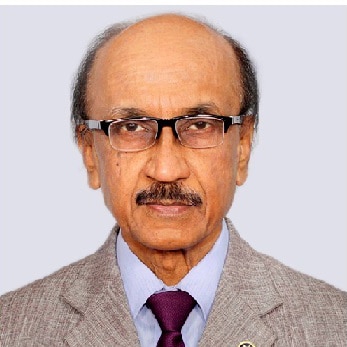
BANGLADESH
Fazle Kabir
GRADE: B
Bangladesh has maintained 6%–7% GDP growth in recent years and has moved up into the ranks of the lower-middle-income countries. Its central bank, Bangladesh Bank, controls two policy rates, the repurchase rate (repo rate) and the reverse repurchase rate. While the bank has kept interest rates on hold so far this year, it has been sterilizing only part of the liquidity from external inflows, which could lead to problems down the road. Inflation from food prices is another concern, following recent floods. Kabir, a former senior secretary in the ministry of Finance, has kept broad money-supply growth in line with the bank’s target.
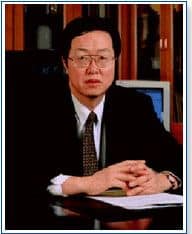
CHINA
Zhou Xiaochuan
GRADE: C+
Chinese president Xi Jinping has called upon the People’s Bank of China to take a stronger role in mitigating risk in the financial system and modernizing its regulatory framework.
Zhou, the PBOC’s long-serving governor, says the central bank will maintain policy continuity and stability while reinforcing financial support for supply-side structural reforms. The PBOC has kept its benchmark one-year lending rate unchanged at 4.35% so far this year. Short-term rates have risen, however, as the bank has drained cash from the banking system. The PBOC is trying to contain financial risks without slowing economic growth.
HONG KONG
Norman Chan
GRADE: B-
The Hong Kong Monetary Authority raised rates twice this year, following similar moves by the Federal Reserve. The main objective of monetary policy in the special administrative region is to keep the currency in a narrow trading range around 7.8 to the US dollar. The HKMA has sufficient reserves to defend the peg for a very long time. It has been forced to dip into those reserves this year, as the Hong Kong dollar has repeatedly fallen to the lower end of its permissible trading band. In August, the HKMA announced additional sales of exchange-fund bills to sop up excess cash in the system after years of loose monetary policy.
INDIA
Urjit Patel
GRADE: B+
Prime minister Narendra Modi’s ban on high-denomination bank notes in November 2016 slowed economic growth in the first quarter of this year. The Reserve Bank of India shifted its policy in February to neutral from accommodative and then raised its reverse repo rate in April to absorb excess liquidity in the banking system. The bank further lowered its benchmark interest rate by a quarter point, to 6%, in August, after inflation fell to a five-year low. The decision by the monetary policy committee came on a 4–2 vote.
The country’s banks have high levels of nonperforming loans, but the government has given the central bank new powers to rectify the situation.
INDONESIA
Agus Martowardojo
GRADE: B
Bank Indonesia has left its benchmark seven-day reverse repo rate unchanged at 4.75% so far this year, after cutting the rate four times last year to stimulate the economy. With the global economy improving and Indonesia’s recovery continuing, the central bank indicated that the decision to stand pat was consistent with its overall efforts to maintain macroeconomic and financial stability.
Martowardojo, a former finance minister, says Bank Indonesia will continue to stabilize the foreign exchange rate. The central bank expects GDP growth to be in the 5%–5.4% range this year.
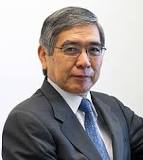
JAPAN
Haruhiko Kuroda
GRADE: B+
Kuroda, whose term ends next April, says Japan has finally escaped from deflation but still needs to work hard to get inflation back to its 2% target.
The Bank of Japan has made massive asset purchases in recent years, seeking to accelerate inflation. In September 2016, the central bank changed its policy to aim at capping long-term interest rates. The BOJ has kept its key short-term interest rate unchanged at -0.1% so far this year, while seeking a 10-year government bond yield of 0%. As Japan remains in slow-growth mode, with changing demographics creating ongoing challenges, the central bank is likely to take its time in eventually winding up its quantitative easing program.
KAZAKHSTAN
Daniyar Akishev
GRADE: B
The National Bank of Kazakhstan cut its overnight policy rate by 50 basis points in May, to 10.5%, bringing the cumulative reduction to 650 basis points since it began easing policy in May of 2016. The central bank said inflationary expectations have been successfully tamped down, the tenge currency is stable, and the economy is improving.
Stronger oil production from Kashagan Field and an economic recovery in Russia are boosting GDP growth. There are concerns, however, about the health of some banks following a property price collapse.
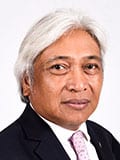
MALAYSIA
Muhammad Ibrahim
GRADE: B+
Bank Negara Malaysia, the central bank, has held its overnight policy rate unchanged at 3% so far this year in an effort to sustain economic growth.
Ibrahim took the top post in May 2016, succeeding Zeti Akhtar Aziz, who had led the bank for 16 years. Beginning next year, the bank plans to release the names of banks that it penalizes, along with the amount and reason for the penalties, in an effort to improve transparency.
Meanwhile, Bank Negara has moved to improve onshore currency trading, although it bans offshore trading in ringgit nondeliverable forwards.
MYANMAR
Kyaw Kyaw Maung
GRADE: C+
The Central Bank of Myanmar has kept its benchmark interest rate on hold at 10% so far this year. The economy is growing at a robust rate of about 7%—albeit from a very low base. The lack of reliable data collection is a problem, however, and the country’s legal and regulatory institutions need to be further developed to meet international standards.
A weak currency and widening current account deficit are also worrisome challenges for the central bank leadership. A new investment law could help reverse last year’s slump in foreign direct investment. After years of isolation, reforms are being introduced slowly and the business environment is improving.
NEPAL
Chiranjivi Nepal
GRADE: C+
Nepal Rastra Bank, the central bank, has held its official interest rate at 7% so far this year. The country’s GDP growth slowed to 0.8% in 2016, following the devastating earthquakes of 2015; but the economy has rebounded this year on reconstruction and improved agricultural output. However, recent floods destroyed many food crops. Nepal depends heavily on remittances from overseas workers as a source of foreign exchange to finance its current account deficit. The central bank has eased bank reserve requirements to encourage lending to small enterprises.
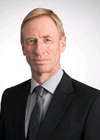
NEW ZEALAND
Grant Spencer (Acting)
GRADE: TOO EARLY TO SAY
The Reserve Bank of New Zealand has kept its official cash rate at a record low 1.75% this year, as inflation has failed to return to its 2% target. Following its August meeting, the central bank said monetary policy was expected to remain accommodative, “but less so going forward.” Some of the froth has come off the overheating housing market after the bank introduced loan-to-value restrictions. The bank has indicated its displeasure with recent appreciation of the New Zealand dollar, which is making it more difficult to get inflation back on track. Graeme Wheeler, 65, retired as governor of the Reserve Bank at the end of September. Spencer took over as acting governor.
PAKISTAN
Tariq Bajwa
GRADE: TOO EARLY TO SAY
The State Bank of Pakistan has held its policy rate unchanged at 5.75% since May 2016. Tariq Bajwa was named governor in July of this year, succeeding Ashraf Mahmood Wathra, who completed his three-year term but was unable to win a second term.
Investment from China has boosted Pakistan’s economic growth to more than 5%. China is investing more than $60 billion under the China-Pakistan Economic Corridor, the flagship of China’s One Belt, One Road program, also known as the Road & Belt Initiative. China is building ports, power plants and highways throughout Pakistan, and will get the use of thousands of acres of agricultural land in return.
PHILIPPINES
Nestor Espenilla Jr
GRADE: TOO EARLY TO SAY
Bangko Sentral ng Pilipinas, the central bank of the Philippines, has kept its overnight policy rate unchanged at 3% since June 2016. Espenilla, formerly a deputy governor, replaced long-serving governor Amando Tetangco in July 2017.
As an insider, Espenilla is expected to maintain the current policy stance, which has served the country well. The central bank adopted an interest-rate corridor system last year to help develop a more active money market. Espenilla has cautioned companies not to rely too heavily on foreign borrowing at a time when the Philippine peso has been weakening.
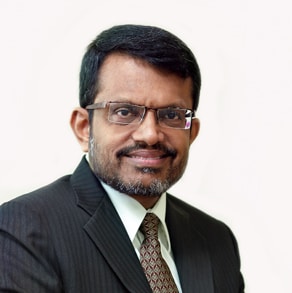
SINGAPORE
Ravi Menon
GRADE: B-
The Monetary Authority of Singapore (MAS) manages the Singapore dollar against a trade-weighted basket of foreign currencies. Singapore’s de facto central bank (technically MAS is a government agency rather than an independent central bank) does not control the monetary system by monitoring interest rates, which have been creeping higher.
Since April 2016, the MAS has maintained a neutral policy, without seeking appreciation of the Singapore dollar. Real GDP growth was 2% last year. Consumer spending is weak, with incomes under pressure, household debt rising and unemployment at a six-year high.
SOUTH KOREA
Lee Ju-yeol
GRADE: B
The Bank of Korea has held its base rate unchanged at a record low 1.25% so far this year, as the pace of growth in private consumption has remained weak. Governor Lee says it is not right to automatically follow the Federal Reserve in raising interest rates, since this would increase the debt burden on the population.
The central bank expects real GDP growth to reach 2.8% this year, as exports and investment have risen. Consumer inflation has been holding steady at the 2% level, while core inflation is somewhat lower. Household debt and youth unemployment are rising, however.
SRI LANKA
Indrajit Coomaraswamy
GRADE: B+
The Central Bank of Sri Lanka raised its benchmark interest rate by a quarter point to 7.25% in March to contain inflation. An increase in household spending and a construction boom could produce economic growth of about 4.5% this year, despite a drought followed by flooding, which damaged crops.
The central bank is following a flexible foreign exchange policy to rebuild reserves. The International Monetary Fund in July released the third tranche of a three-year, $1.5 billion loan. Starting next year, however, a new tax law will render nonresident foreign currency accounts, which had previously been exempt, subject to taxes the same way rupee deposits are.
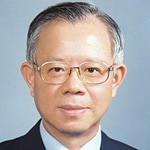
TAIWAN
Fai-Nan Perng
GRADE: A
Taiwan’s central bank, Central Bank of the Republic of China, has held its benchmark discount rate on 10-day loans to banks unchanged at 1.4% so far this year. It maintained its accommodative monetary policy stance to foster economic growth.
Expanding exports helped to boost the GDP growth rate to 1.5% in 2016 from 0.7% in 2015. The unemployment rate edged slightly from 4% in April 2016 to 3.8% in April 2017. Foreign reserves have ticked upward to a record $440 billion. Meanwhile, the Taiwan new dollar has strong fundamentals and continues to outperform. Taiwan’s inflation rate has been among the lowest in the region.
THAILAND
Veerathai Santiprabhob
GRADE: C+
The Bank of Thailand has kept its benchmark one-day repurchase rate unchanged at 1.5% so far this year. The central bank says the expansion in domestic demand is not yet sufficiently broad, although the outlook for exports has improved.
Inflation is expected to rise at a slower rate than expected, providing room for the Bank of Thailand to inject more monetary stimulus to boost the economy. The military government is trying to accelerate major infrastructure projects to bolster domestic growth and activity, including a $5.2 billion high-speed rail venture in partnership with China.
UZBEKISTAN
Mamarizo Nurmuratov
GRADE: TOO EARLY TO SAY
In May, the Central Bank of the Republic of Uzbekistan lost its chairman of 26 years when the long-serving and much-admired Faizulla Mullajanov died. In June, as Nurmuratov took over, the bank raised its refinancing rate by 500 basis points to 14%. The bank’s board said high levels of lending and devaluation of its currency, the som, had increased inflationary pressures. Inflation in 2016 was 5.7% and is forecast to reach 10% next year. The central bank says its interest rate would be lowered once consumer prices stabilize and inflation risks are reduced.
VIETNAM
Le Minh Hung
GRADE: B-
The State Bank of Vietnam, which is administered by the government, lowered its refinancing rate to 6.25% from 6.5% in mid-summer. The country enjoys strong capital inflows and a healthy manufacturing sector. Exports of garments and smartphones have kept the economy humming, with GDP growth above 6% annually. Consumer price inflation is running at about 2.5%. Hung, who became governor in May 2016, is a well-connected member of the Central Committee of the Communist Party, and held the post of deputy governor from 2011 to 2014.



